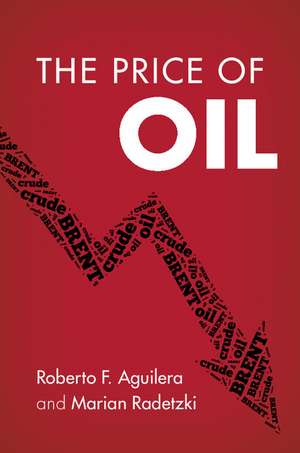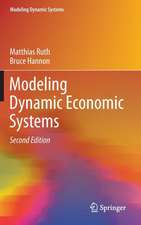The Price of Oil
Autor Roberto F. Aguilera, Marian Radetzkien Limba Engleză Paperback – 25 oct 2015
| Toate formatele și edițiile | Preț | Express |
|---|---|---|
| Paperback (1) | 289.91 lei 6-8 săpt. | |
| Cambridge University Press – 25 oct 2015 | 289.91 lei 6-8 săpt. | |
| Hardback (1) | 781.61 lei 6-8 săpt. | |
| Cambridge University Press – 25 oct 2015 | 781.61 lei 6-8 săpt. |
Preț: 289.91 lei
Nou
Puncte Express: 435
Preț estimativ în valută:
55.49€ • 60.30$ • 46.64£
55.49€ • 60.30$ • 46.64£
Carte tipărită la comandă
Livrare economică 21 aprilie-05 mai
Preluare comenzi: 021 569.72.76
Specificații
ISBN-13: 9781107525627
ISBN-10: 1107525624
Pagini: 252
Ilustrații: 18 b/w illus. 18 tables
Dimensiuni: 152 x 224 x 14 mm
Greutate: 0.35 kg
Editura: Cambridge University Press
Colecția Cambridge University Press
Locul publicării:New York, United States
ISBN-10: 1107525624
Pagini: 252
Ilustrații: 18 b/w illus. 18 tables
Dimensiuni: 152 x 224 x 14 mm
Greutate: 0.35 kg
Editura: Cambridge University Press
Colecția Cambridge University Press
Locul publicării:New York, United States
Cuprins
Acknowledgements; 1. Introduction and overview; Part I. Oil's Extraordinary Price History: How Can It Be Explained?: 2. The price of oil since the early 1970s: observations and implications; 3. OPEC and its behavior cannot explain oil's price performance; 4. Can depletion and rising costs explain the price developments?; 5. State ownership, government greed and the slowdown of capacity expansion; 6. The resource curse and capacity destruction; Part II. The Shale and Conventional Oil Revolutions: Low Prices Ahead: 7. The shale revolution: US achievements to date and envisaged impacts on global energy markets; 8. Longevity of US shale oil: have we only seen the beginning?; 9. The conventional oil revolution; 10. Environmental issues arising from the revolutions; 11. Will the revolutions spread globally?; 12. A substantial long-term price fall in store; Part III. Global Implications for the Macroeconomy, the Environment and for Politics: 13. Impact on macroeconomy and trade balances; 14. Climate policy with low oil prices; 15. Political repercussions; Conclusions: 16. What have we learnt?; References; Index.
Recenzii
'This cheerfully iconoclastic analysis of the past, present and future of the petroleum industry makes a compelling read. Whilst some of its conclusions will be undoubtedly challenged as contradicting the conventional wisdom, it carefully sets out their underlying logic and assumptions. That applies as much to the first part that anatomises the behaviour of crude oil prices over the past forty years as to the subsequent discussion of the shale oil revolution and its implications. Although the authors' own views of the future are clear they are careful to stress the uncertainties and are at pains to provide a range of possible futures. The book should be required reading not just for specialists but for all those involved with the petroleum industry and energy policy, however tangentially.' Phillip Crowson, Honorary Professor and Professorial Research Fellow, Centre for Energy, Petroleum and Mineral Law and Policy, University of Dundee
'This fascinating book elucidates the economics, geography, history, and politics of oil and the price of oil. The authors explain why the shale revolution seems likely to keep oil prices comparatively low for a long time to come, demonstrating how the power of technology and human ingenuity prevails over concerns about depletion. They also lay out the links between the shale and conventional oil revolutions and climate policy. An excellent and edifying read.' Thorvaldur Gylfason, University of Iceland
'Much has been written about life under high oil prices. Aguilera and Radetzki offer an early and valuable attempt to grapple with the economic, geopolitical and climate implications of life under low oil prices.' Russell Gold, Senior Energy Reporter, The Wall Street Journal and author of The Boom
'If there is one book to read to understand how oil has been priced over the past half century and how it is likely to be priced over the next half century this is it. Aguilera and Radetzki have produced a tour de force. In simple English they have summarized the disruptive implications of the shale revolutions - hydraulic fracturing and horizontal drilling - on unleashing supplies at lower costs that will continue to wreak havoc with the petro-states of the world and define not just the geopolitics of oil but the politics of climate change and a host of other macro- economic issues for decades to come. Their out-of-the box dramatic conclusions about low prices for years to come are based on transparent assumptions and modeling, and in the process they manage to tackle the major strands of energy economics over the last fifty years in a manner that will be meaningful to the lay public and both meaningfully challenging and controversial for experts.' Edward L. Morse, Head of Commodities Research, Citibank
'This is a fascinating book written in a clear and convincing manner on an extremely important and timely question - namely, how will the real price of oil evolve over the long run defined as the next twenty years? For readers … who want to know about past and future trends in the price of oil, this is definitely a book to read.' Resources Policy
'Why is the price of oil so volatile? I thought I knew the answer… till I read Aguilera and Radetzki.' Matt Ridley, The Times
'I found this book to be well argued, thought provoking, and fun to read. The authors have presented both statistical data and literature studies to support their case while acknowledging alternative points of view that they think less likely. Those with professional interest in energy markets as well as the general public interested in energy issues are likely to enjoy this book.' Carol A. Dahl, The Energy Journal
'This fascinating book elucidates the economics, geography, history, and politics of oil and the price of oil. The authors explain why the shale revolution seems likely to keep oil prices comparatively low for a long time to come, demonstrating how the power of technology and human ingenuity prevails over concerns about depletion. They also lay out the links between the shale and conventional oil revolutions and climate policy. An excellent and edifying read.' Thorvaldur Gylfason, University of Iceland
'Much has been written about life under high oil prices. Aguilera and Radetzki offer an early and valuable attempt to grapple with the economic, geopolitical and climate implications of life under low oil prices.' Russell Gold, Senior Energy Reporter, The Wall Street Journal and author of The Boom
'If there is one book to read to understand how oil has been priced over the past half century and how it is likely to be priced over the next half century this is it. Aguilera and Radetzki have produced a tour de force. In simple English they have summarized the disruptive implications of the shale revolutions - hydraulic fracturing and horizontal drilling - on unleashing supplies at lower costs that will continue to wreak havoc with the petro-states of the world and define not just the geopolitics of oil but the politics of climate change and a host of other macro- economic issues for decades to come. Their out-of-the box dramatic conclusions about low prices for years to come are based on transparent assumptions and modeling, and in the process they manage to tackle the major strands of energy economics over the last fifty years in a manner that will be meaningful to the lay public and both meaningfully challenging and controversial for experts.' Edward L. Morse, Head of Commodities Research, Citibank
'This is a fascinating book written in a clear and convincing manner on an extremely important and timely question - namely, how will the real price of oil evolve over the long run defined as the next twenty years? For readers … who want to know about past and future trends in the price of oil, this is definitely a book to read.' Resources Policy
'Why is the price of oil so volatile? I thought I knew the answer… till I read Aguilera and Radetzki.' Matt Ridley, The Times
'I found this book to be well argued, thought provoking, and fun to read. The authors have presented both statistical data and literature studies to support their case while acknowledging alternative points of view that they think less likely. Those with professional interest in energy markets as well as the general public interested in energy issues are likely to enjoy this book.' Carol A. Dahl, The Energy Journal
Descriere
This book explains why oil prices rose so spectacularly in the past and examines how they will be suppressed in the future.














